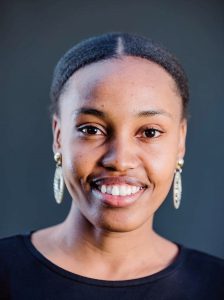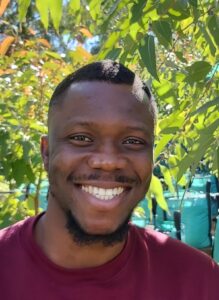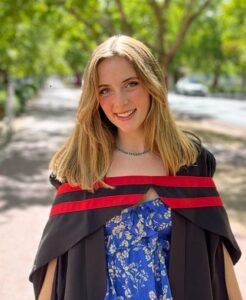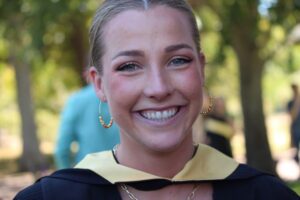Forest Measurements and Modelling
The site for the FMM Research Group at Stellenbosch University
Students
Current students
Ms Gugu Gama (Ph.D. candidate)
 Gugu Gama was born in Newcastle which is a city located in the province KwaZulu Natal. She later moved to Johannesburg and received her bachelor’s degree in Botany and Biochemistry from the University of Johannesburg. With great interest in wood and bark anatomy, she furthered her studies and obtained her M.Sc. degree from the University of Johannesburg majoring in Plant Anatomy and Molecular Systematics and Plant Evolution. She has a background in lianescent species portraying an uncommon formation of cambial variant in the genus Grewia. Gugu is therefore excited to join the EucXylo team and expand her knowledge on wood formation in Eucalyptus species. The first aspect of her Ph.D. research will investigate the dynamics of xylem growth in Eucalyptus cladocalyx focusing on the relationship among growth and climate under varying climate conditions in South Africa. Learn more about Gugu’s work here.
Gugu Gama was born in Newcastle which is a city located in the province KwaZulu Natal. She later moved to Johannesburg and received her bachelor’s degree in Botany and Biochemistry from the University of Johannesburg. With great interest in wood and bark anatomy, she furthered her studies and obtained her M.Sc. degree from the University of Johannesburg majoring in Plant Anatomy and Molecular Systematics and Plant Evolution. She has a background in lianescent species portraying an uncommon formation of cambial variant in the genus Grewia. Gugu is therefore excited to join the EucXylo team and expand her knowledge on wood formation in Eucalyptus species. The first aspect of her Ph.D. research will investigate the dynamics of xylem growth in Eucalyptus cladocalyx focusing on the relationship among growth and climate under varying climate conditions in South Africa. Learn more about Gugu’s work here.
Mr Mpilo Khumalo (Ph.D. candidate)
 Mpilo Khumalo grew up in Bergville, a small town in the beautiful valleys of the Drakensberg mountains in KwaZulu Natal. He obtained his B.Sc. in Biological Sciences, B.Sc. (Hons) in Ecology and Environmental Sciences, and M.Sc. in Ecosystems Ecology from the University of the Witwatersrand. His M.Sc. research focused on Wood respiration in southern African savanna ecosystems supervised by the distinguished Professor Bob Scholes and under the mentorship of Professor Sally Archibald. His research expertise ranges from plant physiology to modelling various ecophysiological processes from tissues to ecosystem level. He has joined Stellenbosch University as a Ph.D. candidate under the EucXylo research group at the Department of Forest and Wood Science. His Ph.D. research will relate xylogenesis (wood formation) in several Eucalyptus varieties to various ecophysiological and biogeochemical processes, for example, evapotranspiration, sap flow, carbon fluxes (namely photosynthesis, sequestration and respiration), and plant resource allocation, all which are mainly driven by changes in climate and environmental conditions. Learn more about Mpilo’s work here.
Mpilo Khumalo grew up in Bergville, a small town in the beautiful valleys of the Drakensberg mountains in KwaZulu Natal. He obtained his B.Sc. in Biological Sciences, B.Sc. (Hons) in Ecology and Environmental Sciences, and M.Sc. in Ecosystems Ecology from the University of the Witwatersrand. His M.Sc. research focused on Wood respiration in southern African savanna ecosystems supervised by the distinguished Professor Bob Scholes and under the mentorship of Professor Sally Archibald. His research expertise ranges from plant physiology to modelling various ecophysiological processes from tissues to ecosystem level. He has joined Stellenbosch University as a Ph.D. candidate under the EucXylo research group at the Department of Forest and Wood Science. His Ph.D. research will relate xylogenesis (wood formation) in several Eucalyptus varieties to various ecophysiological and biogeochemical processes, for example, evapotranspiration, sap flow, carbon fluxes (namely photosynthesis, sequestration and respiration), and plant resource allocation, all which are mainly driven by changes in climate and environmental conditions. Learn more about Mpilo’s work here.
Mr Oluwaseun Gakenou (Ph.D. candidate)
Learn more about Oluwaseun’s work here, and see his LinkedIn profile here.
 Oluwaseun was born and raised in Lagos, Nigeria. He received his bachelor’s degree in Forestry and Wildlife Management from the Federal University of Agriculture Abeokuta (FUNAAB). He completed his M.Sc. project with EucXylo (see here) in 2021, using the stand level hybrid model 3-PG (Physiological Principles Predicting Growth) to predict growth in South African E. grandis X urophylla clones. In 2022, he took on a role as EucXylo’s data steward during which time he migrated much essential data into the GEMS platform. Fueled by his interest in data science and a relentless drive for skill enhancement, he embarked on a journey as a Ph.D. candidate with the EucXylo team in 2023. His project is centered around leveraging LiDAR technology to monitor and characterize crown architecture in young eucalypts. The scope of his work entails acquiring TLS scans at an exceptionally fine temporal scale and developing robust pipelines for the efficient management and analysis of the extensive dataset.
Oluwaseun was born and raised in Lagos, Nigeria. He received his bachelor’s degree in Forestry and Wildlife Management from the Federal University of Agriculture Abeokuta (FUNAAB). He completed his M.Sc. project with EucXylo (see here) in 2021, using the stand level hybrid model 3-PG (Physiological Principles Predicting Growth) to predict growth in South African E. grandis X urophylla clones. In 2022, he took on a role as EucXylo’s data steward during which time he migrated much essential data into the GEMS platform. Fueled by his interest in data science and a relentless drive for skill enhancement, he embarked on a journey as a Ph.D. candidate with the EucXylo team in 2023. His project is centered around leveraging LiDAR technology to monitor and characterize crown architecture in young eucalypts. The scope of his work entails acquiring TLS scans at an exceptionally fine temporal scale and developing robust pipelines for the efficient management and analysis of the extensive dataset.
Mr Kuno Venter (M.Sc. candidate)
Ms. Erin Ramsay (M.Sc. candidate)
 Erin grew up in East London in the Eastern Cape. She has both and undergraduate and honours degree in biodiversity and ecology from Stellenbosch University. She has always been interested in climate and global change, which was fostered through working with the School for Climate Studies here at Stellenbosch University. She has a worked studying Protea physiology through varying climatic conditions and is now broadening her knowledge through her M.Sc., working with various Eucalyptus species. This is a collaborative project between the Global Change Biology Group and EucXylo labs under the supervision of Prof Guy Midgley and Dr David Drew.
Erin grew up in East London in the Eastern Cape. She has both and undergraduate and honours degree in biodiversity and ecology from Stellenbosch University. She has always been interested in climate and global change, which was fostered through working with the School for Climate Studies here at Stellenbosch University. She has a worked studying Protea physiology through varying climatic conditions and is now broadening her knowledge through her M.Sc., working with various Eucalyptus species. This is a collaborative project between the Global Change Biology Group and EucXylo labs under the supervision of Prof Guy Midgley and Dr David Drew.
Ms. Yasmin DeRaay (M.Eng. candidate)

Yasmin was born in Knysna and grew up in the Transkei. In her free time, she enjoys painting, fishing, hiking, and anything related to nature and the outdoors. Her love for nature and appreciation for the outdoors started during family holidays in Nature’s Valley, where her dad would take them on hikes and pause to share insights about every tree they walked past. She recently obtained her degree in Industrial Engineering, where she developed a machine learning model to identify grapevine cultivars based on their leaves. The prospect of her Master’s journey in 2024 excites her as it will allow her to combine her love for nature with the skills and knowledge gained during her degree. In this upcoming endeavor, she will capture images of Eucalyptus roots and apply machine learning to gain deeper insights into their growth dynamics.
Mr. Nathan Doyle (M.Sc.)

Nathan was born in Somerset West and spent a good deal of his childhood in Grabouw amongst the small green pocket of Pines and Apple Orchards. Nathan has always had a fascination with the natural world for as long as he can remember, with a craving to understand how these natural processes function at a deeper level. During the University of Stellenbosch Open Day, Nathan stumbled upon a small booth which exposed him to the concept of pursuing a career in the Forestry and Wood Science sector. Through conversing with highly enthusiastic and good-natured people, he fell in love with the field.
Mr. Jacques Vermeulen (M.Sc.)

.
Graduates
Dr Justin Erasmus (Ph.D.)
Dr. Alta Saunders (Ph.D.)
Dr Rafael Keret (Ph.D.)
Dr Erich Seifert
Dr Scovia Akello
Mr Oluwaseun Gakenou (M.Sc.)
Ms Gabigabi Sibiya (M.Sc.)
Ms Gloria Burengengwa (M.Sc.)
Mr Ben van Heerden (M.Sc.)
Mr Johan Stefan (M.Sc.)
Mr Philip van Niekerk (M.Sc.)
Mr Philip Muyambo (M.Sc.)
Ms Lucy Nevhungwili (M.Sc.)
Mr Chris Tonkin (M.Sc.)
Mr Matthew van Eyssen (M.Sc.)
Mr Chris Erasmus (M.Eng.)
Ms Yenziwe Mbuyisa (M.Sc.)
Recent Comments